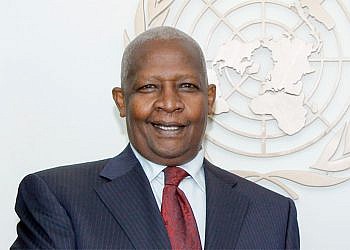Illicit online platforms offering cut-rate access to films and TV series are often fundraising channels for syndicates involved in everything from child porn to sex-trafficking, drugs, and terrorism.
Law enforcement teams across Africa now take an aggressive approach to prosecuting the criminals involved in pirating and using content.
A 2009 study found extensive links between film piracy, organised crime and terrorist groups.
The purchase of any kind of counterfeit goods can be traced to organised crime. Stolen content may be entertaining, but it is being used to fund the most harmful, grotesque crimes on the planet, including human trafficking, terrorism, gambling, drug dealing and child pornography.
These principles apply irrespective of the brand or product being counterfeited – everything from a fake fragrance to a pirated TV series can be part of a fundraising campaign for an international terror network.
From a moral point of view, users of pirated products are financial sponsors of criminal activities, all of which are interlinked in the global criminal underworld – drugs, terror and sex trafficking included.
After years of information campaigns on the evils that are funded by content piracy, it’s “no more Mr Nice Guy” from police and prosecutors across Africa. Law enforcement is clamping down, and users of pirated content are squarely in the crosshairs. The message is now clear: engage in piracy, and face severe consequences.
The use of illegally pirated content – films, series, music, etc – opens online users to very real personal risks, such as malware, identify theft, fraud, and financial ruin.
However, the most critical risk is that it makes them complicit in international crimes destroying millions of lives.
While streaming a series from a dodgy site may seem harmless at first blush, it opens users up to arrest, prosecution and even jail.
Suspects have been arrested in Cape Town for selling pirated content. In Tanzania, two were convicted for running an illegal content streaming website, and in Kenya, two men were arrested recently for providing illegal internet services. Raids are now being conducted all over Africa almost daily, as law enforcement takes its work to a new level.
Other destructive impacts of content piracy are that the creative industry suffers from lost jobs and income; audiences suffer due to reduced choice; and industry and entire economy suffers through discouraged investment. Culturally, content piracy also robs African creatives of the opportunity to tell their own stories.
Complicating the challenge of fighting piracy is that pirate streaming websites are cheaper than legitimate content platforms. This is because authentic content businesses pay the artists who create the music, the film workers who produce the shows, and all the professionals who put entertainment content together.
Pirate operations, on the other hand, simply steal the finished product and profit from it, with no investment or support for the development of the industry.
“The days of gently informing citizens of the risks of piracy are over,” says Frikkie Jonker, Director of Broadcasting Piracy and Cybersecurity at Irdeto.
“People need to understand the severity of what they are doing when they support piracy, and they must know the consequences they will face.”
Supporting the new content piracy clampdown is an increasingly firm, continent-wide set of copyright and anti-piracy laws. Police services and the courts are committed to aggressively prosecuting piracy across the continent.
They also have digital surveillance and monitoring systems to support their work and gather evidence for their investigations.
These capabilities are supported by clear government commitments across African territories. A recent cooperation agreement between South Africa’s justice department and pan-African advocacy
group Partners Against Piracy (PAP) is a case in point.
“This kind of cooperation will ensure that lawbreakers are arrested, prosecuted and jailed quickly and effectively,” says Jonker.
“Law enforcement has always been committed to prosecutions across Africa and they are constantly making arrests and winning convictions.”
Enforcement agencies on the continent also undergo regular training to inform them of the latest piracy trends, and to give them the tools and equipment to execute their job as professionally as possible.
Jonker lists recent breakthrough arrests in Kenya, Tanzania, Ghana, Nigeria and Zimbabwe and Botswana for crimes such as rebroadcasting, selling decoders illegally, domain piracy, breach of copyright, accessing pirated content, and being complicit in organised criminal syndicates.
There have also been arrests outside Africa, thanks to collaboration between local and international law-enforcement agencies such as the US Department of Homeland Security, Interpol, and Europol.
Ultimately, the war against content piracy has entered a new era of more ruthless enforcement. In a globalised criminal environment, even a seemingly non-violent crime like content-piracy has adevasting human impact. Law enforcement has adapted to respond accordingly.










































